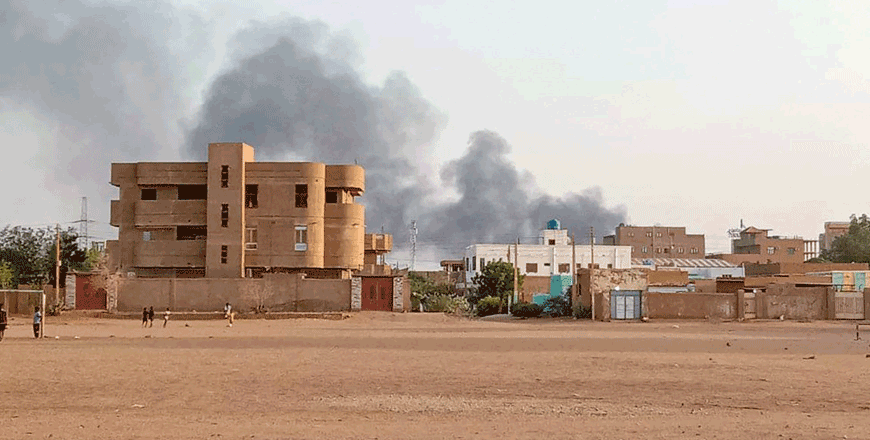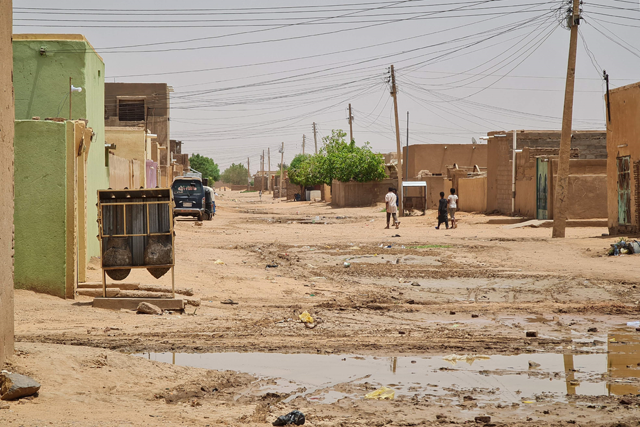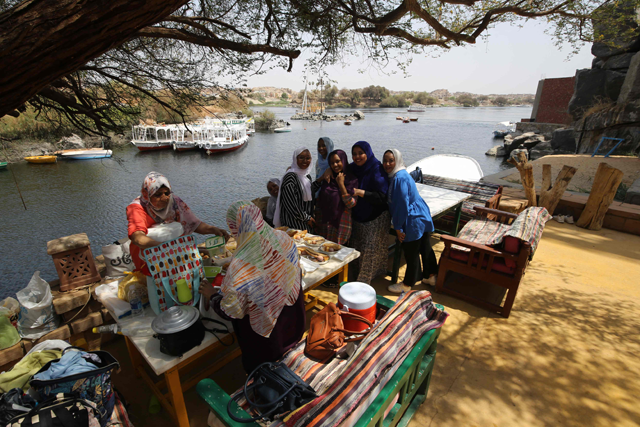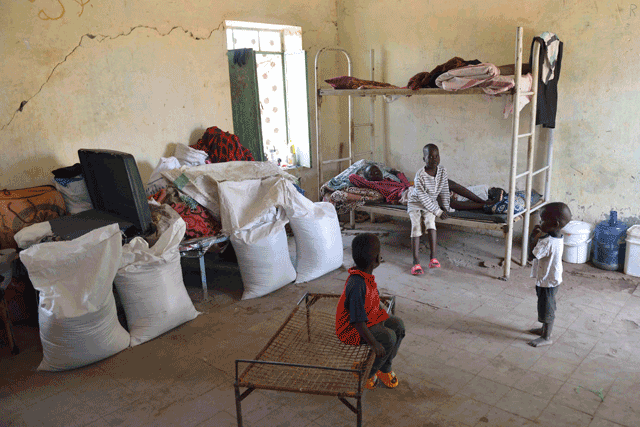You are here
Sudan mediation to resume in Saudi as war enters fourth month
By AFP - Jul 15,2023 - Last updated at Jul 15,2023

Smoke billows in the distance around the Khartoum Bahri district amid ongoing fighting on Friday (AFP photo)
WAD MADANI, SUDAN — Sudanese army representatives have returned to Jeddah in Saudi Arabia for talks with their paramilitary foes, a government source said on Saturday as the war between rival generals entered its fourth month.
"A delegation of the armed forces has returned to Jeddah to resume negotiations with Rapid Support Forces [RSF] rebels," the source told AFP on condition of anonymity because they were not authorised to speak to media.
The RSF has made no comment on returning to the talks in Jeddah, which Saudi and US mediators adjourned last month after a series of repeatedly violated ceasefires.
On April 15, a power struggle between army chief Abdel Fattah Al Burhan and his former deputy, RSF commander Mohamed Hamdan Daglo, burst into all-out war, claiming at least 3,000 lives and displacing more than three million people.
The delegation in Saudi Arabia signals a return to diplomatic efforts by the army, after it boycotted talks last week in Ethiopia hosted by east African regional bloc IGAD.
Khartoum’s foreign ministry had objected to Kenyan President William Ruto’s leadership of the IGAD quartet, accusing Nairobi of siding with the RSF.
Before the Jeddah talks were suspended, US mediators had grown increasingly frustrated with both sides’ reluctance to work towards a sustained truce.
Experts believe that both Burhan and Daglo have opted for a war of attrition instead, hoping to extract more concessions at the negotiating table later.
No respite
For three months, barely a day has passed for residents of the capital Khartoum without their homes shaking from constant air strikes, artillery blasts and gun battles.
To escape the brutal urban warfare and rampant looting, 1.7 million people have fled the capital, according to the United Nations. Millions remain in the city, however, sheltering at home as the violence shows no signs of abating.
Witnesses in the city’s northwest reported “clashes using various types of weapons” on Saturday, after a day of heavy fighting Friday left plumes of black smoke over several parts of the capital.
Others said RSF drones had targeted Khartoum’s largest military hospital.
The UN has said that most hospitals in combat zones are out of service.
The worst fighting has taken place in Khartoum and in the western region of Darfur, where a quarter of Sudan’s 48 million people live.
Entire villages and neighbourhoods there have been destroyed, civilians buried in mass graves and officials assassinated for their ethnic background by the RSF and allied Arab militias.
Reports of atrocities — including sexual violence and civilians being targeted for their ethnicity — have prompted the International Criminal Court to launch a war crimes investigation.
Though most of the fighting has been concentrated in Khartoum and Darfur, new fronts have sporadically opened up, particularly in the south where witnesses said a rebel group took an army base in South Kordofan state on Friday.
Compounding disasters
Those who successfully flee combat zones are not out of harm’s way.
More than 2.4 million people have been displaced to other parts of Sudan, where roadblocks, the breakdown of the banking system and fragile health services mean responders are ill-equipped to meet soaring demand.
Aid groups and health workers repeatedly warn that without humanitarian corridors — which the army and RSF both had pledged but which failed to materialise — disease outbreaks and overwhelmed care facilities could spell disaster.
The UN says 740,000 people have fled across borders to Sudan’s neighbours, some of which face economic crises or political instability themselves.
In impoverished South Sudan, the closure of trade with its northern neighbour, combined with the influx of returnees and refugees, is jeopardising an already fragile humanitarian situation, according to the International Committee of the Red Cross.
And in the Central African Republic, “small arms smuggling” across the border is booming, while “severe shortages in food and fuel” threaten livelihoods, President Faustin Archange Touadera warned at a summit of Sudan’s neighbours in Cairo on Thursday.
At that meeting, Egyptian President Abdel Fattah Al Sisi urged international donors “to honour their commitments”, referring to $1.5 billion in aid pledged at a Geneva conference in June — less than half the estimated needs of Sudan and its immediate neighbours.
Related Articles
KHARTOUM — Sudan's devastating war raged on into a third month on Thursday as the reported death toll topped 2,000 and after a provincial go
WAD MADANI, Sudan — Sudanese army chief Abdel Fattah Al-Burhan said Saturday "we don't need" the African Union to resolve the country's near
WAD MADANI, Sudan — Gunmen from Sudan’s paramilitary Rapid Support Forces(RSF) were accused of attacking a remote town on Friday before goin














